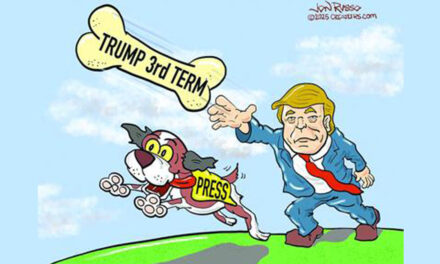
Unemployment Enhancement Expires – Will Benefits go Down from Here?
GOP lawmakers are considering reducing unemployment benefits to as low as $200 per week to encourage Americans to get back to work and to mitigate an unprecedented surge in federal spending.
Republicans argue that the $600 per week currently offered is keeping people at home because it’s more money than many workers would earn at their jobs. Democrats insist the benefits will spur economic growth.
According to federal data, the $600 per week benefit combined with state benefits is more money than what 68% of unemployed workers eligible for those benefits made at their jobs before the pandemic.
I know several individuals in my personal life who have quit their jobs or dropped to part-time in order to collect these unusually high unemployment benefits. This trend exposes serious flaws in the system and proves that a large percentage of people will choose to stay unemployed if given the chance.
The $600 per week federal lifeline is set to expire July 31st, but House lawmakers have already approved a $3 trillion package to extend those benefits through the end of the year. Senate Republicans favor a $1 trillion package that includes smaller unemployment checks, $105 billion to help schools reopen in the fall, another round of stimulus checks that may be limited to low-income earners, and boosted funding to the Paycheck Protection Program.
President Trump is hoping to see a payroll tax cut and liability protections for businesses added to the package and wants to block funding from schools that refuse to hold in-person classes.
In the meantime, as many as 20 million Americans who are still working have faced pay cuts or logged fewer hours as businesses struggle to remain afloat during the pandemic. According to ADP data, a majority of these pay cuts affect the top 40% of wage earners. Surveys suggest these individuals doubt their ability to find a better job within the next three months.
“We have an income crisis that is even larger than a jobless crisis,” says Claudia Sahm, director of macroeconomic policy at the Washington Center for Equitable Growth.
According to mortgage data company Black Knight, as many as 4.3 million American homeowners missed their mortgage payments in May (the highest since 2011). Food banks throughout the country have seen their demand increase by up to 50%.
As noted by former Labor Department official Jane Oates, smaller paychecks threaten to exacerbate the coming economic recession as Americans use their money for bills, groceries, and other necessities.
“The speed of recovery is really directly aligned to how consumers are behaving,” says Oates. “And if people don’t have money, they’re not spending it.”




























Easy, pay them. Cut the money in 1/2 pay only $300